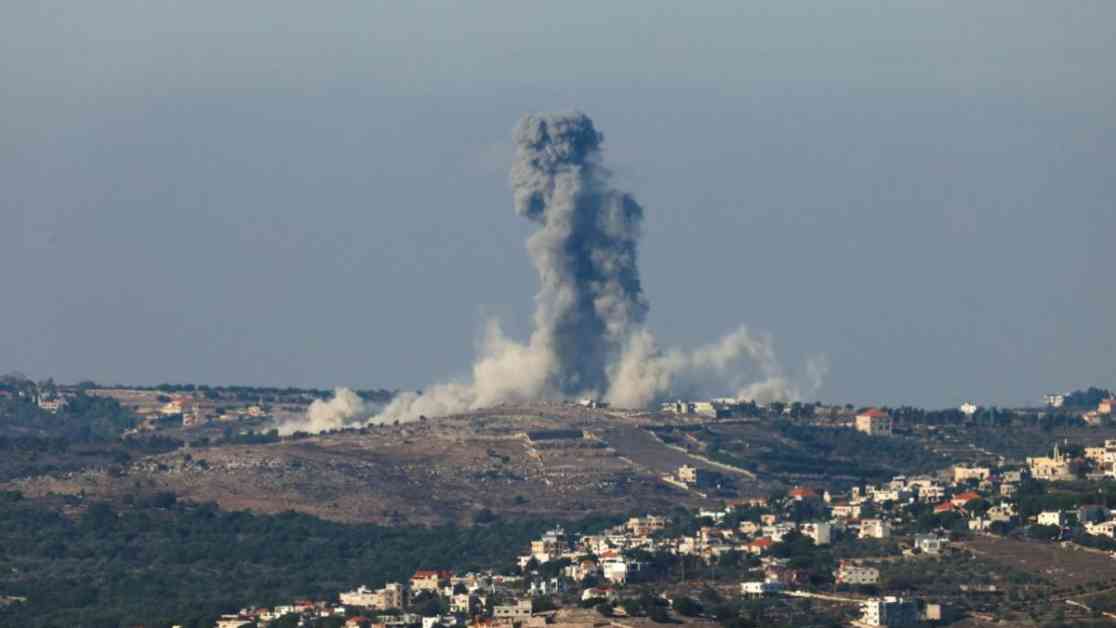Iran Issues Stern Warning to Israel Following Houthi Attacks in Yemen
The Middle East is currently witnessing a complex web of conflicts and tensions, with Israel finding itself embroiled in battles on multiple fronts. Recent attacks in Lebanon have dealt significant blows to Hezbollah, including the killing of its leader Hassan Nasrallah and several senior military leaders. In a daring move, the Israeli military has also targeted Houthi fighters in Yemen, sparking concerns about potential retaliation from Iran, a key supporter of both Hezbollah and the Houthi movement.
Israeli Strikes in Lebanon and Yemen
The Israeli military has claimed responsibility for a series of targeted strikes in Lebanon that have reportedly decimated Hezbollah’s leadership. Among the casualties was Hassan Nasrallah, who had led the militant group for over three decades. Additionally, a high-ranking general from Iran’s Revolutionary Guard was killed in an airstrike in Beirut, further escalating tensions in the region.
Meanwhile, in a separate operation, Israel launched attacks on Houthi fighters in Yemen, citing retaliatory measures against recent missile strikes aimed at Israeli targets. The Israel Defence Forces (IDF) deployed a significant number of aircraft to strike infrastructure and ports allegedly used by the Houthi regime to transport Iranian weapons and military supplies.
Iran’s Response and Regional Implications
The Iranian government has issued a stern warning to Israel, vowing that the recent attacks will not go unanswered. However, there appears to be a division within Iran’s leadership regarding the appropriate course of action. Hardliners are pushing for a robust response, including direct attacks on Israel, while moderates advocate for restraint to prevent further escalation of hostilities.
The conflict in Lebanon and Yemen has not only reshaped the regional power dynamics but also raised concerns about the potential for a broader conflict involving Iran, Israel, and other actors in the Middle East. The targeting of Hezbollah and the Houthi movement, both key players in Iran’s “Axis of Resistance,” signifies a significant shift in the ongoing proxy war between Israel and Iran.
Heightened Security Measures and Uncertainty in Iran
Reports indicate that Iran’s supreme leader, Ayatollah Ali Khamenei, has been moved to a secure location within the country amid heightened security concerns. The recent losses suffered by Hezbollah have deeply impacted Khamenei, who is said to be in mourning over Nasrallah’s death. While publicly signaling support for Hezbollah’s leadership in responding to Israel, Iran’s next steps remain uncertain as the country grapples with internal divisions over its foreign policy approach.
Israeli Prime Minister Benjamin Netanyahu has expressed cautious optimism about Israel’s position in the conflict but has warned of the challenges ahead. The ongoing conflict has led to a massive wave of displacement in Lebanon, with over a million people forced to flee their homes due to the Israeli strikes. The humanitarian crisis unfolding in the region underscores the urgent need for diplomatic efforts to de-escalate the situation.
Humanitarian Impact and International Response
The United Nations and other humanitarian agencies have mobilized to provide aid to those affected by the conflict in Lebanon and Yemen. The UN agency for Palestinian refugees, Unrwa, has reported that thousands of displaced individuals are seeking shelter in its facilities, highlighting the dire need for assistance in the region. The UN World Food Programme has launched emergency operations to address food shortages and support those impacted by the violence.
In Gaza, the situation remains volatile, with continued Israeli airstrikes causing casualties among civilians. A recent attack on a school sheltering displaced Palestinians resulted in multiple deaths and injuries, further exacerbating the humanitarian crisis in the enclave. The international community has condemned the violence and called for an immediate ceasefire to prevent further loss of life and suffering.
Looking Ahead: Challenges and Opportunities for Peace
As the conflict in the Middle East escalates, the need for diplomatic solutions and dialogue becomes increasingly urgent. The complex interplay of regional powers, including Iran, Israel, and various militant groups, underscores the challenges of achieving lasting peace in the region. Despite the current tensions and uncertainties, there are opportunities for dialogue and negotiation to de-escalate the conflict and prevent further humanitarian crises.
In conclusion, the recent attacks in Lebanon and Yemen have significantly altered the dynamics of the ongoing conflict in the Middle East, raising concerns about the potential for a broader regional war. The international community must work together to facilitate dialogue and peacebuilding efforts to address the root causes of the conflict and prevent further bloodshed. The humanitarian impact of the violence underscores the urgent need for immediate action to protect civilians and provide assistance to those affected by the crisis.













